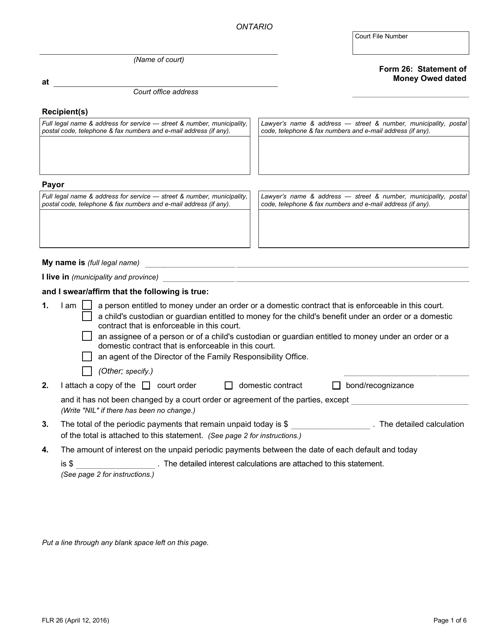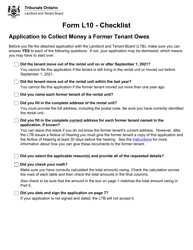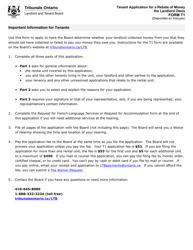Form 26 Statement of Money Owed - Ontario, Canada
Form 26, Statement of Money Owed in Ontario, Canada, is used to declare outstanding debts and financial obligations between parties in legal proceedings. It is a document that helps to provide an accurate record of money owed in various legal matters such as lawsuits, divorces, or business disputes.
The Form 26 Statement of Money Owed in Ontario, Canada is typically filed by the party who is owed the money, such as a creditor or someone seeking payment.
FAQ
Q: What is Form 26 Statement of Money Owed?
A: Form 26 is a legal document used in Ontario, Canada to disclose the amount of money owed by one party to another.
Q: Who needs to complete Form 26?
A: Form 26 is typically completed by a creditor who is seeking to collect money owed to them.
Q: What information is required on Form 26?
A: Form 26 requires information such as the name and address of the creditor and debtor, details about the debt, and any supporting documentation.
Q: Is there a fee to file Form 26?
A: Yes, there is a fee associated with filing Form 26. The fee amount may vary depending on the court jurisdiction.
Q: What is the purpose of filing Form 26?
A: The purpose of filing Form 26 is to provide a formal record of the debt owed, which can be used in legal proceedings to collect the money.
Q: What should I do after completing Form 26?
A: After completing Form 26, you should file it with the court and serve a copy to the debtor to initiate the legal process of collecting the debt.
Q: Can I use Form 26 for debts outside of Ontario?
A: No, Form 26 is specific to debts owed within the province of Ontario.
Q: What are the consequences of not filing Form 26?
A: Failure to file Form 26 may hinder your ability to legally pursue the collection of the debt.
Q: Can I get legal assistance in completing Form 26?
A: Yes, you can consult with a lawyer or seek legal advice to ensure that you properly complete and file Form 26.














